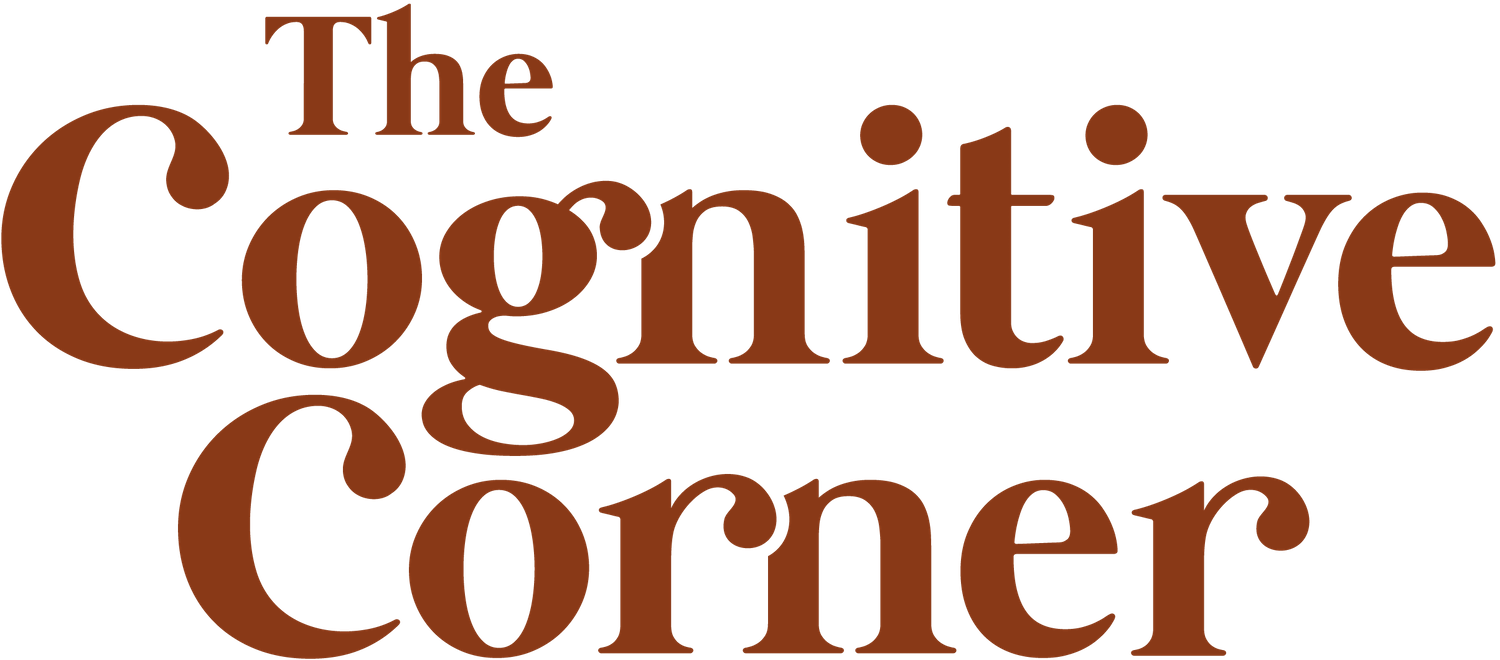Mental Health Blog
Welcome to TCC’s Blog! We believe that knowledge is power, especially when it comes to understanding and managing your mental health. Our posts are split up into 4 categories: "Psych Simplified", to break down psychology concepts into digestible pieces; "Connection Chronicles", to explore all things relationships - intimate and platonic; "Inner Insights" to assist you on your journey of self-awareness, and "Resilience Roadmap", a place solely for providing and explaining tools to cope.
Our Blog
Your Cycle 101: A Beginner’s Guide to Understanding Your Period
Ever notice how your mood, mental health, and emotions are on a rollercoaster every month? Well, for women, that’s your menstrual cycle doing its thing! Whether you’re still waiting for your first period, have been riding the hormonal wave for years, or just want to understand your cycle better, there’s a lot to unpack. Keep reading for a quick breakdown of your cycle and how it impacts your mental health!
Help! I Have No Idea What to Talk About in Therapy
Have you ever found yourself in therapy—whether it's your first session or you've been attending for a while—and suddenly you draw a blank? You might not know what to say or where to take the conversation. It happens to the best of us, and we're here to help! Keep reading and we’ll cover why this happens, ideas for what to talk about in therapy, tools to help, and more to ensure you are feeling back on track.
The Hidden Layers of Grief: Understanding Different Types of Grief
Grief is a complex, non-linear process that looks different for everyone. While we typically associate grief with the loss of a loved one, it can include many forms. Each form carries its own unique challenges, timelines, and emotional impacts.
Despite the type of grief you are experiencing, it is personal to you and each person reacts differently. Exploring these layers can help us navigate the healing journey with compassion and resilience.
Limerence: Understanding Romantic Obsession and How Therapy Can Help
Ever found yourself obsessively daydreaming about someone, replaying every interaction, or feeling like your mood is completely tied to their attention? You might be experiencing something deeper than just a crush—it's called limerence.
Limerence is that intense, almost all-consuming infatuation that can feel exhilarating yet emotionally exhausting. It’s like living in a daydream but with a side of anxiety. You’re constantly craving their reciprocation, idealizing them to perfection, and struggling to focus on anything else. Sound familiar?
But wait—how is this different from love? And more importantly, how do you break free from this emotional roller coaster? Let’s break it down in this blog post.
Somatic Therapy Explained: Benefits, Techniques, and How It Works
Somatic psychotherapy is a body-based therapeutic approach that focuses on the connection between the mind and body. It recognizes that trauma, stress, and emotions are not just processed cognitively but are also stored physically. By integrating body awareness techniques with psychotherapy, this approach to therapy helps individuals regulate emotions, release stored tension, and promote overall healing. Keep reading to learn about what this is, how it works, the benefits, and more!
Culturally Responsive Therapy – Bridging the Gap in Mental Health Care
Ensuring mental health care is high-quality and accessible is very important! A big part of this is Culturally Responsive Care. Cultural background, identity, and lived experiences have a huge impact on individuals and ensuring care aligns with this is key. You’ve probably heard this term over the last few years and might wonder what exactly this means? Well, keep reading to learn more about culture’s impact, what it is, why it is important, and more!
You’re Not Ugly – It’s Just Your Luteal Phase!
You know those few weeks of the month where you’re tired, hungry, emotional and you’re about 5 seconds from having a menty-b every single day? Welcome to the luteal phase—the part of your cycle where the world feels like it’s on the verge of ending. This phase kicks in right after ovulation and lasts until your period starts, typically around 10 to 14 days. And trust me, it can feel like a rollercoaster you didn't sign up for.
How to Manage Anxiety Around New Year’s Resolutions?
The start of the new year brings a sense of excitement and possibilities. It can also be overwhelming. The pressure to set and achieve bigger, better goals can feel like a weight on our shoulders, making it hard to enjoy the things we’ve already accomplished. Finding a good balance is crucial to encourage growth and improve our resilience when things don’t go as planned.
Navigating Yourself Through Grief: Self-Care Strategies to Support Your Well-Being
It’s important to remember that grief is a natural, personal, and nonlinear journey. Sometimes we feel different emotions at different times, all at various intensities, which is okay. These unpredictable instances can be overwhelming, making it difficult to navigate our emotions. Self-care can help regulate our emotions, reduce stress and increase resilience during challenging times. It may not always be easy to prioritize self-care especially when we are coping with some form of loss. In this post, we cover how grief affects well-being, how self-care can help, and more.
Start Setting Boundaries: A “How -to” Guide on Boundaries with Family, Friends and Beyond!
We’ve established that boundaries are essential to many aspects of our well-being. Without them, we run the risk of being hurt, overwhelmed or stressed.
You may be wondering how to set these limits with loved ones, colleagues, classmates etc – we’ll discuss this in today’s post!
The Power of Emotional Intelligence: How it Can Help You Thrive
With the rise of social media and the constant sharing of new pieces of information, you may have heard people mentioning emotional intelligence – but what is it exactly? Keep reading and we’ll discuss what it is, the key pillars, why it is so important, and more!
Exploring Jealousy: Understanding, Managing, and Healthy Coping Techniques
Have you ever felt the sting of jealousy and wondered how to handle it? In this post, we’ll explore what jealousy is, how it affects our lives, and share practical tips to help you manage this complex emotion. Keep reading to learn more!
Caring for yourself in Winter: Self-care strategies for Mental Health
While the winter months can bring excitement for some, it also comes with challenges. Implementing self-care strategies helps you to ensure you take care of your well-being this season! Sometimes it’s hard to know where to start, so continue reading to better understand what these challenges might look like and strategies to support!
The Importance of Boundaries – How to Recognize and Define Them in Your Life
Have you ever left an interaction feeling off, or uncomfortable, potentially wondering what you could do to prevent feeling like that next time? The answer could be setting boundaries! In today’s post, we cover what boundaries are, why they’re important and tips on how to identify where you may need to set them.
Recognizing the Right Time for Therapy
In the fast-paced and often demanding world we live in, it's not uncommon to experience ups and downs in our mental health. While some challenges can be navigated independently or with the support of friends and family, there are moments when seeking the help of a therapist becomes crucial for our well-being.
Grounding Techniques as a Tool: Reducing Stress and Anxiety
Stress and anxiety can often be hard to manage, and sometimes in the moment, it’s hard to know what to do. Grounding techniques allow you to bring your focus back to the present, acting as an anchor! Knowing some of these techniques can be helpful on a day-to-day basis and is good to have in your toolkit.
In this post, we address the importance of calming strategies like these, when to use them, examples, and more to ensure that you are prepared in those anxious and stressful moments!
Minding Your Mental Health This Holiday Season
As exciting as the holidays can be, there is often added stress, anxieties, pressure, etc. that come with them. Taking care of your mental health is very important, however, we recognize that this can be challenging!
Keep reading to learn more about how to be mindful this holiday season and explore some signs, causes, resources, etc.
A Guide to Psychedelic-Assisted Therapy
Psychedelics are a type of drug or substance class that can put users in an altered state of consciousness and perception. They can help shift the individuals' typical perspectives or cognitive patterns.
Let’s explore psychedelic assisted-therapy, how it works and who can benefit from it.
Why Friendships End: A Look at the Causes Behind Friendship Breakups?
Often, when you hear something about a breakup, you probably automatically think that it has to do with a romantic relationship, not a friendship. The reality is that friendship breakups can be just as challenging and it's okay to feel that impact. Coping with a friendship breakup is no cakewalk, but it's a normal thing that most people have experienced at some point in their lives.
In this post, we will break down some of the reasons why this happens and useful tips/tools to help you work through this!
How ADHD Affects Relationships and What You Can Do About It
Attention Deficit Hyperactivity Disorder, more commonly known as ADHD, often causes individuals to have symptoms like disorganization, impulsivity, and frustration. These symptoms can impact areas like communication or intimacy, which can create challenges in relationships. It is important to understand the impacts ADHD can have, so that individuals and couples can learn strategies to help support themselves and create strong connections.






















